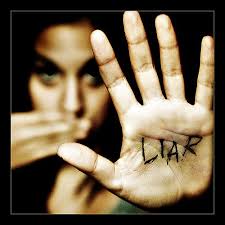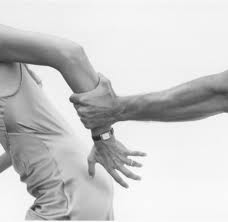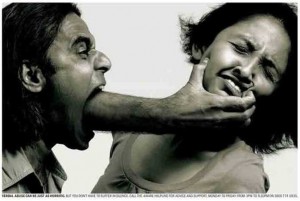
HELP~ IN LOVE AND UNDER ATTACK, Domestic Violence Resource! Marriage Counseling
Today’s article is devoted to a serious issue, domestic violence. With more and more abused partners seeking refuge within shelters and therapy offices, one would imagine that there would exist a cultural and personal awareness of abuse that could protect survivors before violence reaches extremes. However, the lines that exist when violence and abuse pervade the sanctum of a relationship are often fuzzy. This is made even more complex by the fact that we as a society are so quick to blame the victim. You have heard it said before, “why doesn’t he/she just leave?” The reasons that some stay anchored in an abusive relationship are aplenty, some examples include, they are afraid, they may want to stay for their children or family, they may remember times when the relationship was healthy, the survivor may not have access to financial resources, their self esteem and mental health may have eroded from years of suffering because the survivor is receiving strong messages from their abusers that they are to blame for what is happening! It is hard for many to understand how the survivor could be blamed for what is happening. For example after a violent attack, the attacker may ‘gaslight’ the target by denying that anything even happened, saying things like “I didn’t touch you!” “Why are you upset? You’re being dramatic! If you hadn’t gotten out of line this wouldn’t have happened.” Other times the victim may fight back against the perpetrators grabbing, pulling, shoving, barricading, slapping, choking, and then the fault lines become even more hazy, as the victim feels guilty for having struck another and begins to truly internalize the fact that this is all his or her fault.
 The hopeful message of this humble essay is that as a psychological and humanitarian community we provide opportunity for intervention before the violence has a chance to escalate to the newspaper headlines or obituaries. According to the Bureau of Justice Statistics, in 2000 1297 women were killed by a romantic partner and 440 men by a partner. How do these men and women slip through the cracks, how do they avoid the potential help that could ally within co-workers, friends or family? Often individuals in violent situations are alienated with limited social supports. Simultaneously, the abuser may be clever in where he or she places the marks so that the attacks are not as immediately visible. Also, the victim will be an expert at covering up any hints of bruises or contusions because they love the person who is abusing them and don’t want to see their partner end up in trouble nor do they want to burden anyone with the knowledge that something is amiss in what may appear to be their picture perfect life.
The hopeful message of this humble essay is that as a psychological and humanitarian community we provide opportunity for intervention before the violence has a chance to escalate to the newspaper headlines or obituaries. According to the Bureau of Justice Statistics, in 2000 1297 women were killed by a romantic partner and 440 men by a partner. How do these men and women slip through the cracks, how do they avoid the potential help that could ally within co-workers, friends or family? Often individuals in violent situations are alienated with limited social supports. Simultaneously, the abuser may be clever in where he or she places the marks so that the attacks are not as immediately visible. Also, the victim will be an expert at covering up any hints of bruises or contusions because they love the person who is abusing them and don’t want to see their partner end up in trouble nor do they want to burden anyone with the knowledge that something is amiss in what may appear to be their picture perfect life.
Statistically, there is a relationship between domestic violence and the suffering from other mental health diagnoses such as a depressive disorder, self-esteem issues, and these can sometimes be further complicated by the presence of drug or alcohol abuse. Whether the violence causes such problems or people with these dispositions are more likely to enter abusive relationships is an entirely different topic, this writer simply notes that there is a relationship. How can we help someone who we think may be experiencing Domestic Violence to prevent death and further destruction from occurring?
1) Educate our young and old on the signs and symptoms of abusive relationships. The earlier that people learn to see a relationship for what it is the more likely that they will leave.
2)Remain vigilant of anyone that you think may exhibit signs of violent or abusive behavior.
3) Keep the lines of communication open for those you fear have entered an abusive relationships, keep in mind that the friend may have not been in touch in a while because of their abuser.
4) If someone you know is in an abusive relationship do not push them to leave, this may only alienate them further. Do your best to express to that person that you are there for them as a friend and that you respect their will and choices.
Some of the signs of abuse
~An uncontrollable temper
~Tells their partner how to dress
~Tells their partner that they are worthless, that they will never find another mate again
~Easily becomes jealous and possessive
~Forces or insists upon sex
~Destroys belongings such as clothes, electronics, or automobile
~Threatens suicide if their partner tries to leave
~Touches, grabs, restrains, or chokes, pushes, solicits any physical touch after hearing ‘no.’
~Diminishes their partners will to make important choices
~Restricts his or her partners ability to leave him or her
~Shows up at their partners home, work, school, families house/ etc against your wishes
~Constantly checks up on their partner
~Insists on controlling the money, car, or other resources *Financial abuse is a separate kind of abuse which often co-occurs with physical and emotional violence. I.e.
` ~Making their partner account for every penny that is spent
~Stealing from their partner/ taking their money
~Restricting partner to an allowance
~Sabotaging their partners job
Remember abuse is confusing, after years of having ones feelings minimized, it may feel strange or dramatic to label what is happening as abuse, abuse is insidious and nobody should be touched or belittled, abuse starts out small before ending as the kinds of violence that we all have heard about on the news. Often abusive relationships have periods of time where everything seems perfectly fine, but if a person has touched you in a violent way once they are quite likely to do it again. Violence is by definition when someone restricts your ability to move about freely and independently as a human by chocking, pushing, grabbing, pulling, smacking, slapping, punching, hair pulling, it is violent for anyone to touch you when you have asked them not to! Often an abuser will physically assault their target until they become passive, the right to walk, roam, and be is your legal and physical right. Abusers are masters at making excuses for unthinkable acts. They will stop at nothing to blame you for their violence that they were only trying to help you, even trying to convince the target that it didn’t happen. They will classically promise the target that it will never happen again. The abuser will be his or her most charming after an attack, the honeymoon period is a soothing time for the target. This makes it very difficult to leave the abuser because the abused person usually wants to believe that this painful behavior is finally over and when the abuser is doing and saying all of the “right things” and ‘love-bombing’ their target, it is very hard to leave.
The cycle of violence in domestic abuse
http://www.helpguide.org/mental/domestic_violence_abuse_types_signs_causes_effects.htm:
- Abuse – The abusive partner lashes out with aggressive, belittling, or violent behavior. The abuse is a power play designed to show the target “who is boss.”
- Guilt – After abusing the target, the abuser partner feels fearful not guilt over what he’s or she’s done. He’s or she is more worried about the possibility of being caught and facing consequences for his or her abusive behavior.
- Excuses – The abuser rationalizes what he or she has done. The person may come up with a string of excuses or blame you for the abusive behavior—anything to avoid taking responsibility.
- “Normal” behavior – The abuser does everything he or she can to regain control and keep the victim in the relationship. She or he may act as if nothing has happened, or may turn on the charm. This peaceful honeymoon phase may give the victim hope that the abuser has really changed this time.
- Fantasy and planning – In characterological violence, the abuser begins to fantasize about abusing their target again. Or they spend a lot of time thinking about what they imagine the target has done wrong and how he or she will make you see what you did. Then the abuser makes a plan for turning the fantasy of abuse into reality. In situational violence, generally the abuser has less of a plan and explodes in the moment, both kinds of violence are equally dangerous.
- Set-up – Your abuser sets you up and puts his plan in motion, creating a situation where he can justify abusing you.
Some relationships are not as they seem! Awareness is the first step towards a healthier you, a more empowered family and society, if you or someone you know is suffering from the abuse it’s never too late or too early to make a change. For other resources please visit:
http://www.wcspittsburgh.org/page.aspx?pid=291
Or for 24 Hour emergency service
The Womens Shelter Hotline
(412) 687-8005
(877) 338-8255 (toll free number)
In health and Wellness,
The Counseling and Wellness Center of Pittsburgh
Therapy, Marriage Counseling, and Family Counseling in Western Pennsylvania
830 Western Avenue
Pittsburgh Pa 15233
2539 Monroeville BLVD Monroeville PA 15146
counseling and therapy couple counseling couples counseling Couples Therapy domestic violence domestic violence resource emotional abuse family therapy fear financial abuse gaslighting help for abuse Love marital counseling Marriage Counseling physical abuse psychological abuse psychotherapy Relationships situation violence stalking therapy
Related Posts
Social Anxiety Therapy
April 2, 2018
Social Anxiety or Social Phobia Social and anxiety or social phobia is a kind...
The Valentine’s Day Love Manual For Singles, Married, and Those Who Never Want to Date Anyone Ever.
February 7, 2017
The Valentine’s Day Love Manual For Singles, Married, and Those Who...


